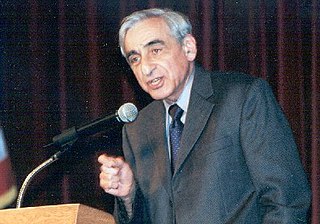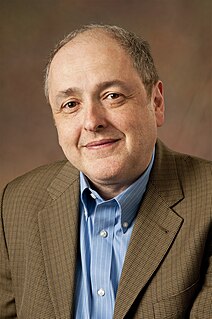
Political philosophy or political theory is the philosophical study of government, addressing questions about the nature, scope, and legitimacy of public agents and institutions and the relationships between them. Its topics include politics, liberty, justice, property, rights, law, and the enforcement of laws by authority: what they are, if they are needed, what makes a government legitimate, what rights and freedoms it should protect, what form it should take, what the law is, and what duties citizens owe to a legitimate government, if any, and when it may be legitimately overthrown, if ever.

Reason is the capacity of consciously applying logic by drawing conclusions from new or existing information, with the aim of seeking the truth. It is closely associated with such characteristically human activities as philosophy, science, language, mathematics, and art, and is normally considered to be a distinguishing ability possessed by humans. Reason is sometimes referred to as rationality.

In the 19th century, the philosophers of the 18th-century Enlightenment began to have a dramatic effect on subsequent developments in philosophy. In particular, the works of Immanuel Kant gave rise to a new generation of German philosophers and began to see wider recognition internationally. Also, in a reaction to the Enlightenment, a movement called Romanticism began to develop towards the end of the 18th century. Key ideas that sparked changes in philosophy were the fast progress of science, including evolution, most notably postulated by Charles Darwin and Jean-Baptiste Lamarck, and theories regarding what is today called emergent order, such as the free market of Adam Smith within nation states, or the Marxist approach concerning class warfare between the ruling class and the working class developed by Karl Marx and Friedrich Engels. Pressures for egalitarianism, and more rapid change culminated in a period of revolution and turbulence that would see philosophy change as well.
The Counter-Enlightenment refers to a loose collection of intellectual stances that arose during the European Enlightenment in opposition to its mainstream attitudes and ideals. The Counter-Enlightenment is generally seen to have continued from the 18th century into the early 19th century, especially with the rise of Romanticism. Its thinkers did not necessarily agree to a set of counter-doctrines but instead each challenged specific elements of Enlightenment thinking, such as the belief in progress, the rationality of all humans, liberal democracy, and the increasing secularisation of society.

Sir Bernard Arthur Owen Williams, FBA was an English moral philosopher. His publications include Problems of the Self (1973), Ethics and the Limits of Philosophy (1985), Shame and Necessity (1993), and Truth and Truthfulness (2002). He was knighted in 1999.

Alasdair Chalmers MacIntyre is a Scottish-American philosopher who has contributed to moral and political philosophy as well as history of philosophy and theology. MacIntyre's After Virtue (1981) is one of the most important works of Anglophone moral and political philosophy in the 20th century. He is senior research fellow at the Centre for Contemporary Aristotelian Studies in Ethics and Politics (CASEP) at London Metropolitan University, Emeritus Professor of Philosophy at the University of Notre Dame, and Permanent Senior Distinguished Research Fellow at the Notre Dame Center for Ethics and Culture. During his lengthy academic career, he also taught at Brandeis University, Duke University, Vanderbilt University, and Boston University.

Michael Laban Walzer is an American political theorist and public intellectual. A professor emeritus at the Institute for Advanced Study (IAS) in Princeton, New Jersey, he is editor emeritus of Dissent, an intellectual magazine that he has been affiliated with since his years as an undergraduate at Brandeis University. He has written books and essays on a wide range of topics—many in political ethics—including just and unjust wars, nationalism, ethnicity, Zionism, economic justice, social criticism, radicalism, tolerance, and political obligation. He is also a contributing editor to The New Republic. To date, he has written 27 books and published over 300 articles, essays, and book reviews in Dissent, The New Republic, The New York Review of Books, The New Yorker, The New York Times, Harpers, and many philosophical and political science journals.
Judith Nisse Shklar was a philosopher and political theorist who studied the history of political thought, notably that of the Enlightenment period. She was appointed the John Cowles Professor of Government at Harvard University in 1980.
The Tanner Lectures on Human Values is a multi-university lecture series in the humanities, founded in 1978, at Clare Hall, Cambridge University, by the American scholar Obert Clark Tanner. In founding the lecture, he defined their purpose as follows:
I hope these lectures will contribute to the intellectual and moral life of mankind. I see them simply as a search for a better understanding of human behavior and human values. This understanding may be pursued for its own intrinsic worth, but it may also eventually have practical consequences for the quality of personal and social life.
T. K. Seung was a Korean American philosopher and literary critic. His academic interests cut across diverse philosophical and literary subjects, including ethics, political philosophy, Continental philosophy, cultural hermeneutics, and literary criticism.
Hypocrisy is the practice of engaging in the same behavior or activity for which one criticizes another or the practice of claiming to have moral standards or beliefs to which one's own behavior does not conform. In moral psychology, it is the failure to follow one's own expressed moral rules and principles. According to British political philosopher David Runciman, "Other kinds of hypocritical deception include claims to knowledge that one lacks, claims to a consistency that one cannot sustain, claims to a loyalty that one does not possess, claims to an identity that one does not hold". American political journalist Michael Gerson says that political hypocrisy is "the conscious use of a mask to fool the public and gain political benefit".
Ivan Soll is an American philosopher who is a Professor Emeritus in the Department of Philosophy at the University of Wisconsin–Madison in the United States. He taught at UW from 1965 until his retirement in May 2011. His teaching and research focused on the philosophy of Friedrich Nietzsche, German philosophy in general, existentialism, aesthetics, and various figures of continental philosophy.

Brian Leiter is an American philosopher and legal scholar who is Karl N. Llewellyn Professor of Jurisprudence at the University of Chicago Law School and founder and Director of Chicago's Center for Law, Philosophy & Human Values. A review in Notre Dame Philosophical Reviews described Leiter as "one of the most influential legal philosophers of our time", while a review in The Journal of Nietzsche Studies described Leiter's book Nietzsche on Morality (2002) as "arguably the most important book on Nietzsche's philosophy in the past twenty years."

James Miller is an American writer and academic. He is known for writing about Michel Foucault, philosophy as a way of life, social movements, popular culture, intellectual history, eighteenth century to the present; radical social theory and history of political philosophy. He currently teaches at The New School.
Sorelianism is advocacy for or support of the ideology and thinking of French revolutionary syndicalist Georges Sorel. Sorelians oppose bourgeois democracy, the developments of the 18th century, the secular spirit, and the French Revolution, while supporting classical tradition. A revisionist interpretation of Marxism, Sorel believed that the victory of the proletariat in class struggle could be achieved only through the power of myth and a general strike. To Sorel, the aftermath of class conflict would involve rejuvenation of both the bourgeoisie and the proletariat.
False necessity, or anti-necessitarian social theory, is a contemporary social theory that argues for the plasticity of social organizations and their potential to be shaped in new ways. The theory rejects the assumption that laws of change govern the history of human societies and limit human freedom. It is a critique of "necessitarian" thought in conventional social theories which hold that parts of the social order are necessary or the result of the natural flow of history. The theory rejects the idea that human societies must be organized in a certain way and that human activity will adhere to certain forms.

Yirmiyahu Yovel was an Israeli philosopher and public intellectual. He was Professor Emeritus of philosophy at the Hebrew University of Jerusalem and at the New School for Social Research in New York. Yovel had also been a political columnist in Israel, cultural and political critic and a frequent presence in the media. Yovel was a laureate of the Israel Prize in philosophy and officier of the French order of the Palme académique. His books were translated into English, French, German, Spanish, Portuguese, Rumanian, Hebrew, Korean and Japanese. Yovel was married to Shoshana Yovel, novelist and community organizer, and they had a son, Jonathan Yovel, poet and law professor, and a daughter, Ronny, classical musician, TV host and family therapist.
Richard L. Velkley is an American philosopher and Celia Scott Weatherhead Distinguished Professor of Philosophy at Tulane University. Velkley is known for his expertise on Kant, Rousseau, and post-Kantian philosophy. He is a former associate editor of The Review of Metaphysics (1997–2006) and a former president of the Metaphysical Society of America (2017–18).









